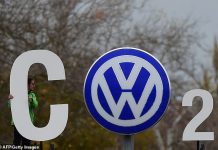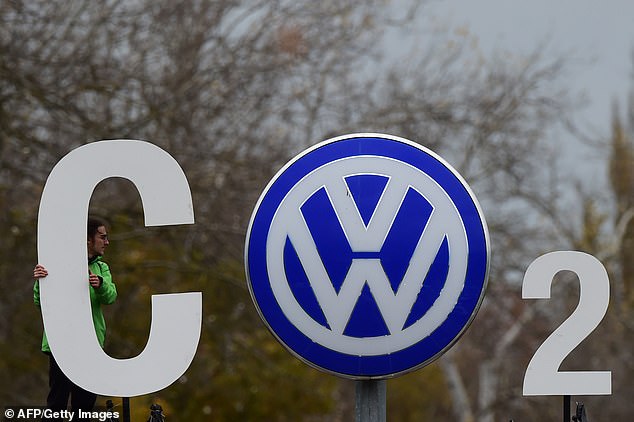Diesel cars are more unpopular than ever with just one in 17 new cars on the market using this kind of internal combustion engine, according to a new report.
This marks a huge change over the last decade.
Back in 2015, when diesels were promoted by the Government with affordable tax rates thanks to their low CO2 emissions, one in two new cars housed a diesel engine.
But analysis shows that market share has plummeted by 87 per cent since.
This is due to the ‘Dieselgate’ scandal, which rocked the automotive sector 10 years ago and has ‘destroyed buyer trust’ in the once-popular fuel type. The arrival of greener technology, namely hybrid and electric cars, have also taken a toll.
And it’s unpopularity is only set to get worse with experts predicting that diesel will make up just 2 per cent of new registrations by 2028.

Auto Express’ analysis found that new diesel car market share has plummeted by 87% in the last 10 years
The fallout from the Volkswagen emissions scandal – a period between 2008 and 2015 during which VW was found to be intentionally installing technology to dupe emissions test – is one of the key elements in the demise of the diesel.
A recent survey commissioned by Auto Express and Carwow found 43 per cent of drivers said dieselgate ‘‘damaged their trust in the industry’, and put them off buying a diesel car again.
Consequently, diesel market share collapsed from almost half (48 per cent) of all cars in 2015 to just six per cent today.
It’s not just Dieselgate that’s tanked sales and reduced the number of diesel options on the market, although it has significantly damaged diesel’s reputation.
Changes to tax policy have accelerated its decline, as Paul Barker, editor of Auto Express explains: ‘Once the default choice for company cars thanks to favourable tax breaks, diesels have now been overtaken by EVs, with even stronger incentives encouraging fleets to go electric.
‘This, combined with increasing cost, improvements in hybrid tech and the looming 2035 ban on new petrol and diesel sales, mean forecasts suggest diesels will make up just two per cent of the market – one in 50 cars – by 2028.’

A decade ago there were around 240 diesel models to choose from, but today that figure has fallen to just 91 . There are still diesel models across all size segments though
Not everyone has turned their back on diesel, though.
There remain a devout group of motorists who prefer the fuel type thanks to strong mpg, huge range between filling up at forecourts, and towing capacity.
New diesel models are still available across all size segments from the small Volkswagen Golf to the premium family Land Rover Defender SUV.
Used diesels are also holding their value strongly, with dwindling numbers triggering competition among second-hand buyers.
According to data from Cox Automotive, diesels retain 51 per cent of their original price after two-to-four years – similar to hybrids (53 per cent) and petrols (58 per cent) and well ahead of EVs (36 per cent) and plug-in hybrids (46 per cent).
And residual values are being pushed up because fewer new diesel are on sale: a decade ago there were around 240 diesel models to choose from, but today that figure has fallen to 91.
Nearly new examples could become more desirable, further pushing up residual values as models go more upmarket.

VED tax brackets, wider ULEZ expansion, and bans on older models entering certain city centres, are also contributing to diesel being stamped out as an option for new car buyers
However, we’re inching forever closer to the ‘death of the diesel’ according to Barker, as government legislation could still force drivers out of diesel cars – from VED tax brackets, to wider ULEZ expansion, or bans on older models entering certain city centres, it’s only a matter of time before diesel is stamped out as an option for new car buyers.
‘Diesel has gone from dominating the new-car market to near extinction in just a decade – a remarkable fall from grace,’ he said.
‘While sales are dwindling, strong used values show there’s still demand, but the writing is clearly on the wall. The big question now is whether diesel continue to fade gradually or if legislation will further accelerate its demise.’

#death #diesel #Market #share #drops #years #dieselgate #destroyed #trust
















